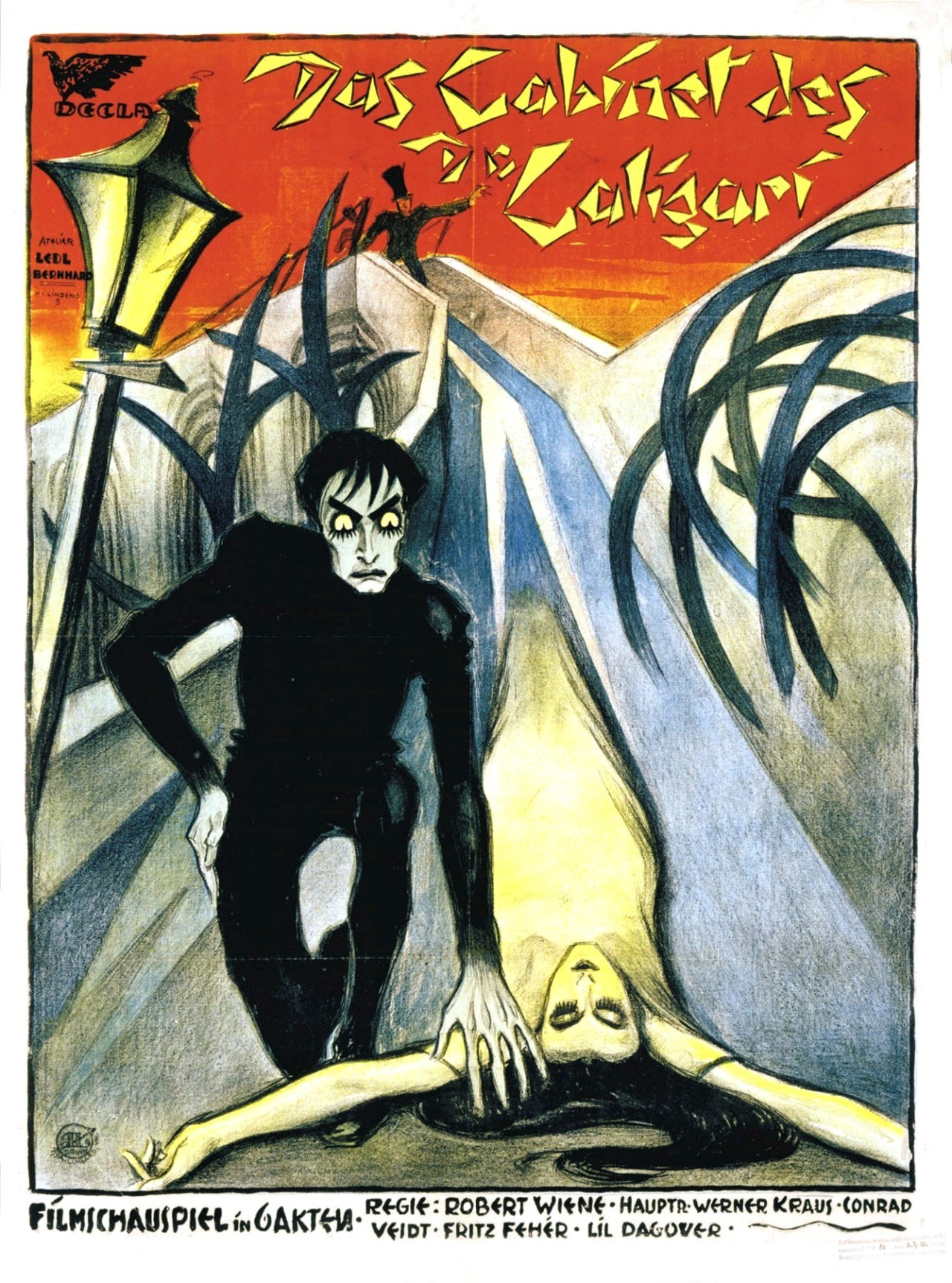The Long View 2006-05-30: Damnation; Fraud; German Studies

By Atelier Ledl Bernhard - http://blackholereviews.blogspot.fr/2012/05/cabinet-of-dr-caligari-1920-fundamental.html, Public Domain, https://commons.wikimedia.org/w/index.php?curid=19571390
German cinema of the early twentieth century continues to be influential even today. I haven't seen Laurel and Hardy in at least twenty-five years, but I had forgotten about this reference to the Cabinet of Dr. Caligari in their work.
Damnation; Fraud; German Studies
Which is more alarming, that The Da Vinci Code became a major film or that X-Men: the Last Ditch blew it out of the water over the Memorial Day weekend? That Spengler at Asia Times has not yet favored us with his thoughts about the X-Men (yes, I know the subtitle is not "the Last Ditch"), but he does have some characteristically intricate views about the success of Dan Brown's book:
The Gemini Contenders
But why should a story subverting the faith induce believers to buy the book, instead of inciting them to respond in the Muslim fashion with riot and death threat? To this one might respond that it's not so long ago that it would have been easy to rouse a rabble to redress some insult to Christian doctrine or to Christian symbols. However, Spengler finds an answer integral to Christianity:
Unlike the Jews, who consider themselves God's people, warts and all, no Christian can see the People of God, or be sure whether he himself belongs to it, or whether the mystical transformation of his flesh actually has taken place. It is not certainty that Jesus offered - except to the few who saw him after the Resurrection - but rather the possibility of faith. If the Christian did not have to wrestle with doubt, like Jacob with the angel on the riverbank, faith would have no redeeming power.
There is an element of doubt that is essential to Christianity, but it is not doubt about the existence of God or about the divinity of Jesus (Christians often do doubt these things, but doubts of that order are not peculiar to Christianity). The essential element is doubt about one's own salvation. One thinks of Luther's frenzied efforts "to get a gracious God," and still more of the Catholic sacramental system, which has no other purpose than to open as wide as possible the gate which we know nonetheless to be fundamentally strait.
How this this relates to book sales is unclear.
* * *
Speaking of Muslims and the Da Vinci Code, I have seen surprisingly little acknowledgment of the fact that Dan Brown's book essentially endorses the Koran's assertion that the resurrection was a hoax. The notion is not original with the Koran: there was an ancient sect called the Docetists who were of the same opinion, though for metaphysical reasons rather than because of any claim to better historical information. In any case, Brown's pseudo-history of Christian dogma might soon start to show up in Muslim polemic, if it has not done so already.
* * *
Speaking of fraud and imposture, I very much enjoyed the program in the PBS American Experience series entitled The Man Behind Hitler, which consisted of readings from Joseph Goebbels' copious diaries (by Richard Branagh, no less) over a background of contemporary stills and film-excerpts that were largely new to me. The producers wisely eschewed the temptation to make the program into a general history of the Third Reich; there was a minimum of editorial narrative and explanatory text. (One bit of the editorial comment was wrong, by the way: when the Great Depression came to Germany, it did not re-ignite hyper-inflation. The fear that it might, however, was one of the reasons that late Weimar governments refused to run deficits that might have stimulated the economy.) The producers could do this because Goebbels really was a very good diarist, at least after he passed through the mopey twentysomething years. Several volumes are of his diaries are available in print.
Again, the mystery here is what this program is doing in a series about American history.
* * *
Here's a bit of Weimar that you don't have to pay for: a copy of Robert Wiene's famous 1920 film, Cabinet of Dr. Caligari, available to the wide world through Google Video. It's really an over-acted stage-play performed against surrealist scenery. The film's interest in sonambulism and mind control is hard to understand today, but those themes were common in that era. I viewed the film over the weekend; it's worth an hour of your time.
I am not systematically interested in cinema, much less in silent cinema, but I could not but notice how much Caligari looked like the 1934 Laurel & Hardy film Babes in Toyland (also known as The March of the Wooden Soldiers), down to the shape of the villain's spectacles. Also, the surrealist stage sets for these films seem to have found a permanent home in miniature-golf courses.
Copyright © 2006 by John J. Reilly




Comments ()